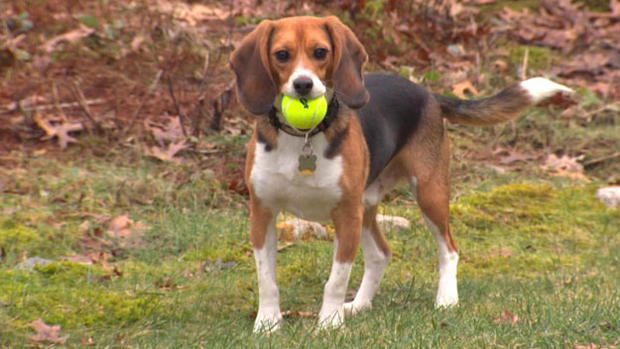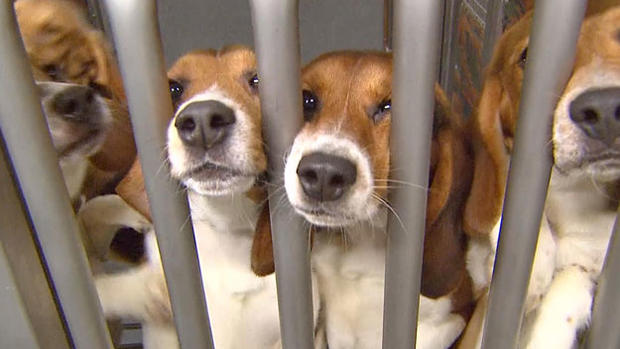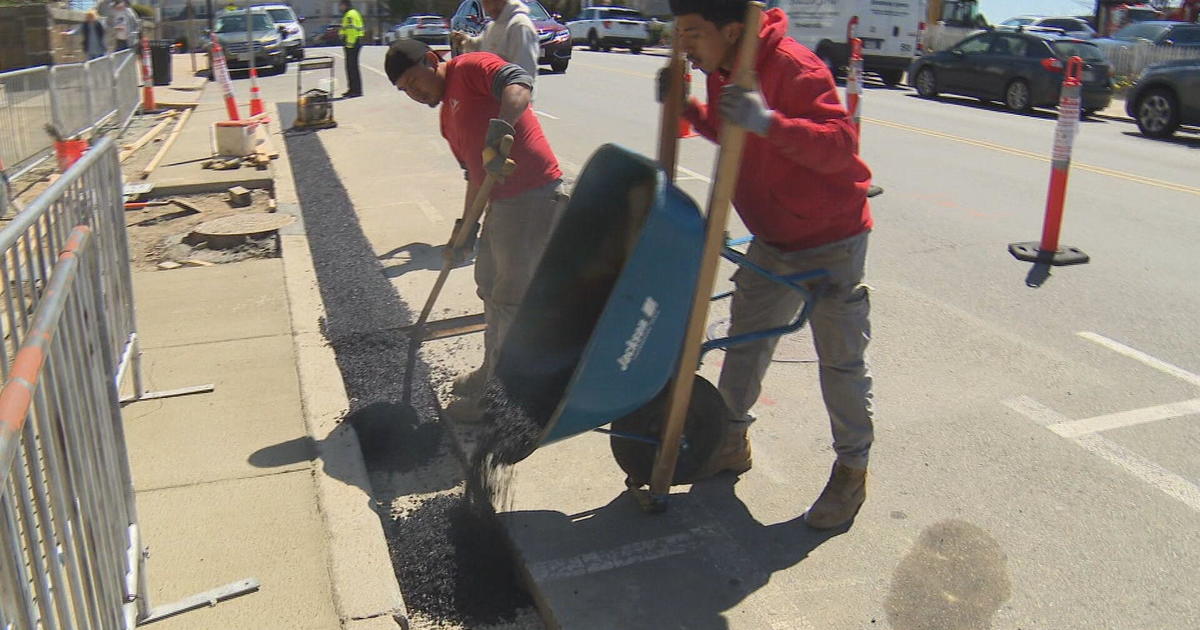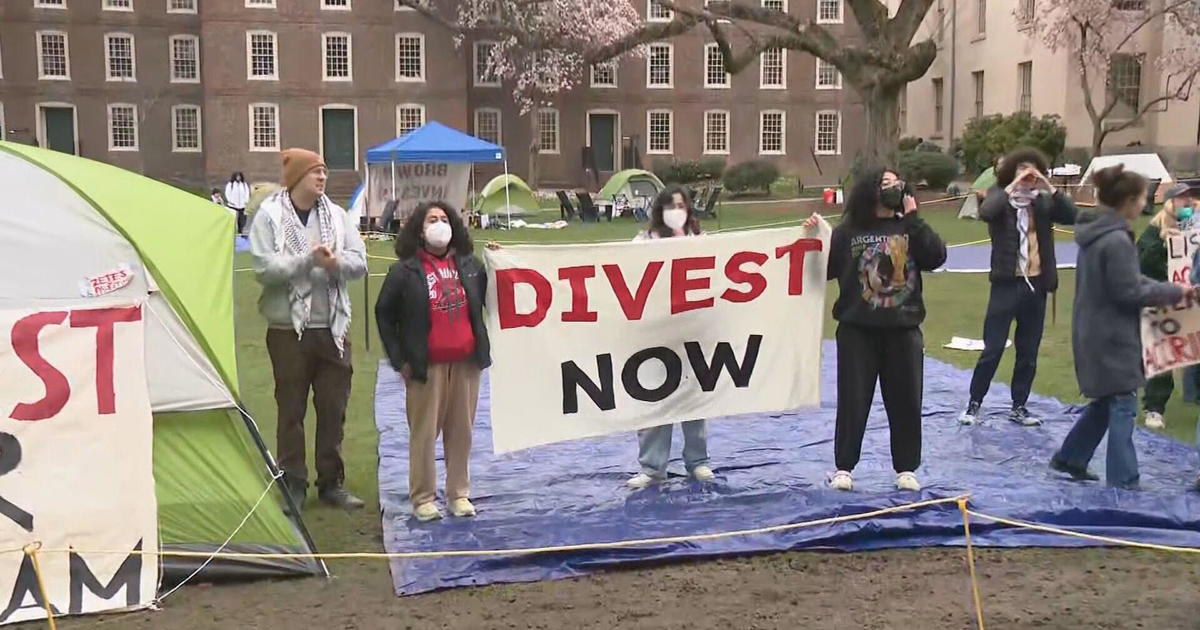I-Team: Dogs Used For Medical Research May Never Go Outside
BOSTON (CBS) - Massachusetts is a hub of medical research and much of that science relies on animal testing, including the use of dogs. There is a great deal of secrecy around how these dogs live and what they are used for. The I-Team discovered many will never see the outside of a laboratory.
An energetic beagle named Jack is one of the lucky ones. He was adopted by the Simons family of Sharon. "We just know he came from a lab in Cambridge," said Debra Simons. "They told us they were allowed out of the cage onto a concrete area once a week," she said.
Jack is one of the few who will live out his golden years with a loving family. Thousands of other dogs used in medical research across the country are euthanized. The I-Team sorted through USDA records. We found 1299 dogs being used right now in research at 12 Massachusetts institutions; many are beagles like Jack, chosen for their size and disposition.
The largest Massachusetts facility is Charles River Labs. The Wilmington company has 750 dogs. Other large companies, veterinary schools and hospitals also report using dogs in research. The I-Team reached out to several of them. Not one would show us the conditions in which the dogs live and no one agreed to an on-camera interview.
We asked Alan Dittrich, of the Massachusetts Society for Medical Research why these companies are so secretive. "I think the secrecy really has to do with intimidation. There's been a long campaign against animal research and animal researchers," he said. Dittrich also told us that his group's members follow animal welfare rules in their treatment of the dogs. "They play. They do not live their entire lives in cages. They are not subjected to great isolation or solitariness."
But according to Kathleen Conlee of the Humane Society of The United States, dogs in out-of-state labs don't have it so well. She told the I-Team animal welfare groups found dogs foaming at the mouth and subjected to painful experiments. "We have done a couple of undercover investigations at laboratories and inevitably we find violations of these minimal standards, which obviously raises significant concerns," she said.
According to Conlee's organization, federal animal welfare standards are loosely enforced with inspections occurring only once per year. They argue advances in technology have made this research almost unnecessary. "We recognize that advances have been made using animals, but with the technology boom today, I think we are at a turning point where we can seriously start looking at replacing these animals," she said.
Dittrich believes the issue is not that simple. "There's not one who would not jump to a validated alternative if it existed, but animals provide us with the best opportunity to see how a new procedure, a new medicine, a new medical device may work when it comes to humans," he said.
In the meantime, adoption groups work to save these animals from euthanasia, getting them out of the labs and into the backyards of families like the Simons. "When they're finished, why not allow them to have a life. I don't understand it," Debra Simons said.
At least one local lab says they do put 100% of their dogs up for adoption. But most would not give us specifics. Charles River Labs sent us a statement saying their dogs are essential to life-saving treatments and that they exceed animal welfare standards.
Send tips for the I-Team to iteam@cbsboston.com or call 617-779 TIPS





